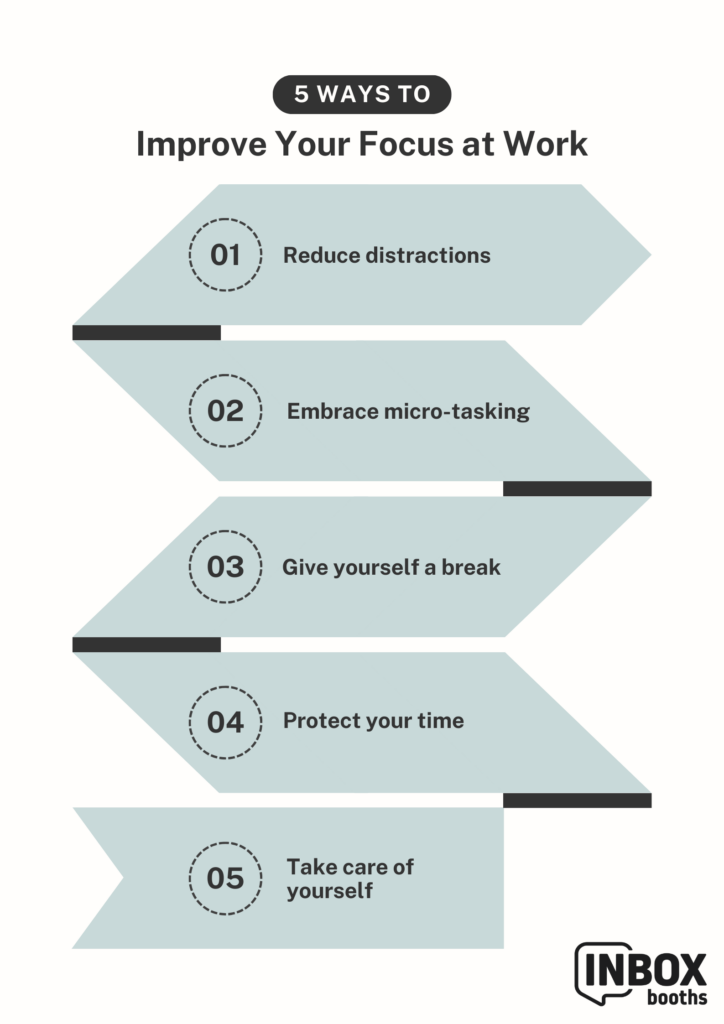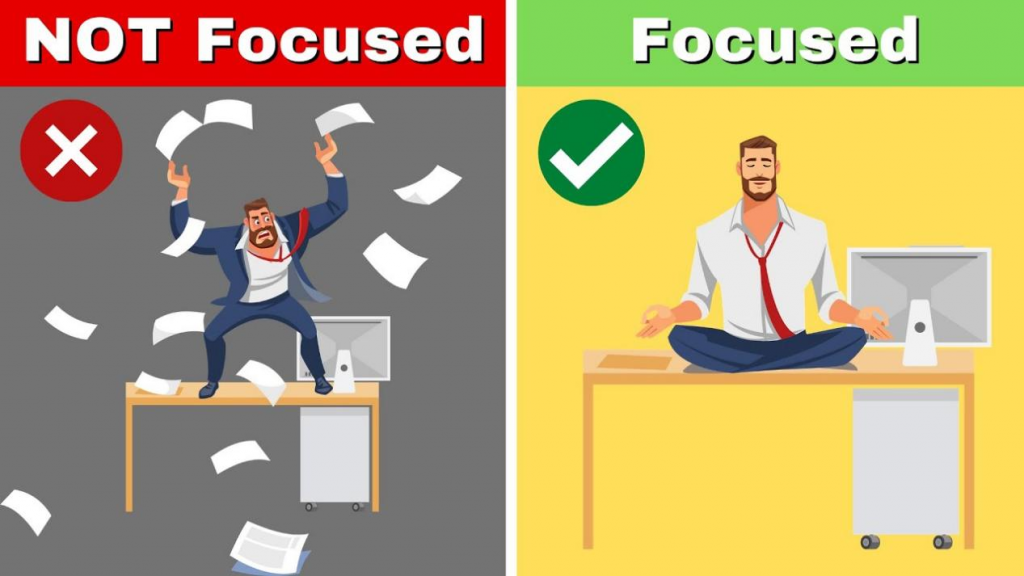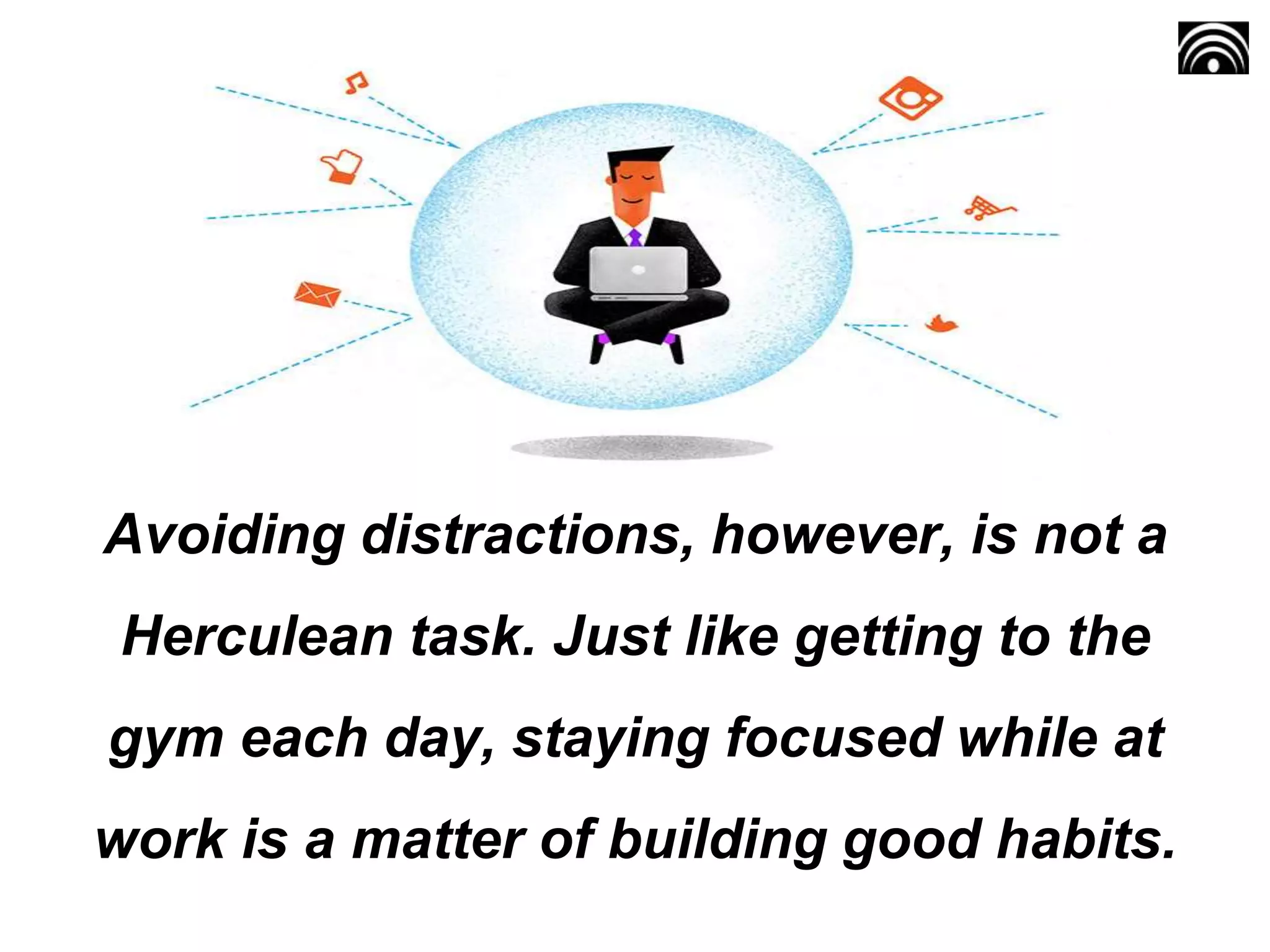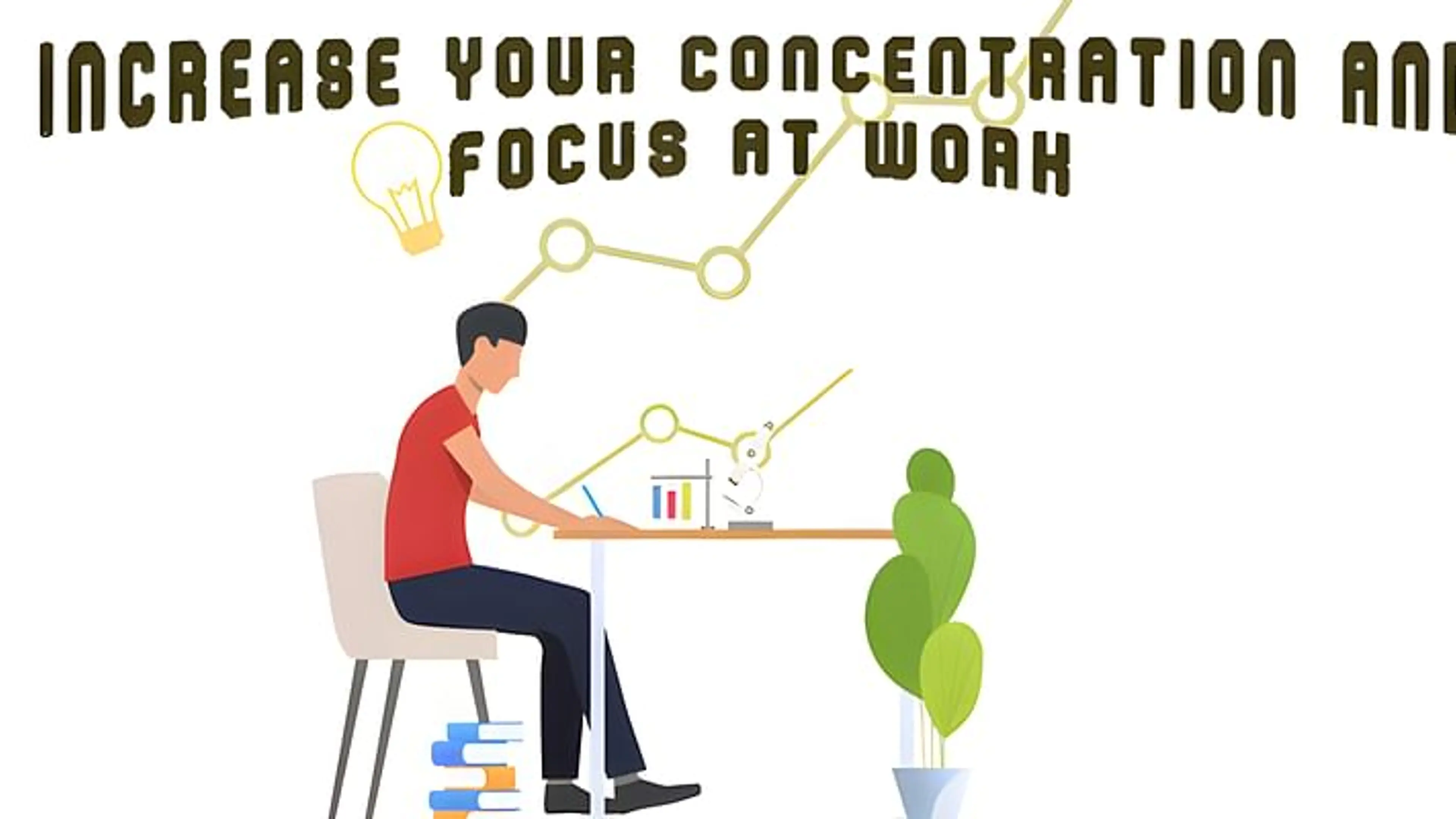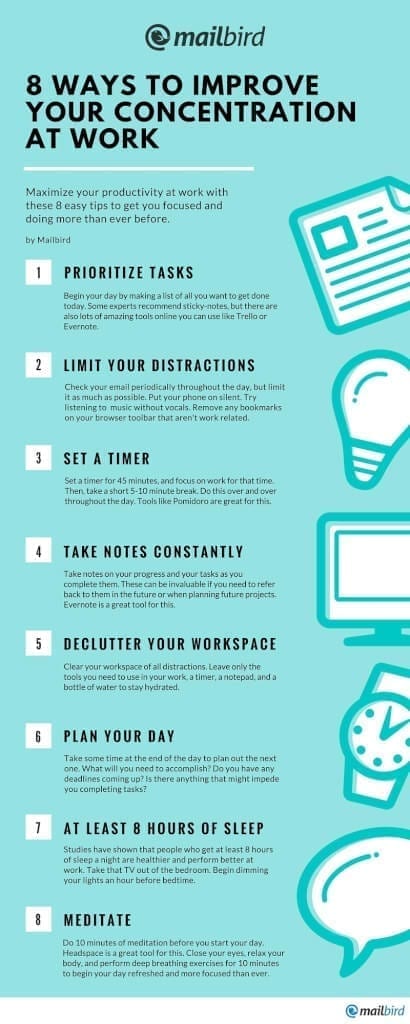How To Increase Your Focus At Work
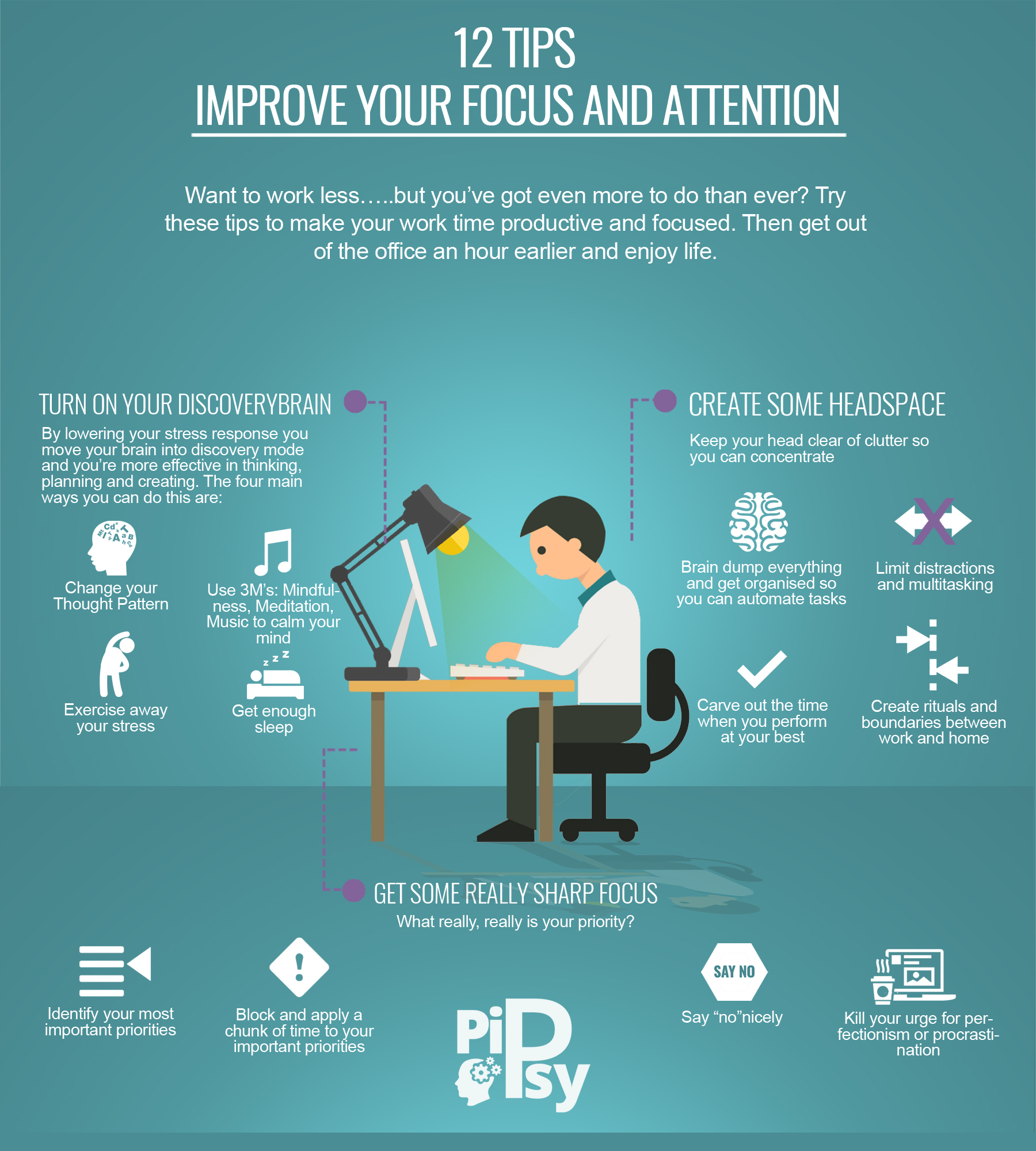
Sluggish productivity costing you money? Attention spans are dwindling, but reclaiming focus at work is achievable.
This guide offers actionable strategies for immediate implementation, boosting concentration and minimizing distractions, based on proven techniques and expert advice.
Optimize Your Workspace
A cluttered desk equals a cluttered mind. Begin by decluttering your physical workspace. Studies show a clean environment reduces visual distractions and enhances focus by up to 20%, according to a Princeton University study.
Organize your desk, remove unnecessary items, and ensure everything has its place. Implement the "one-touch" rule: if you pick something up, deal with it immediately – file it, delegate it, or discard it.
Digital Declutter
Your digital workspace is just as crucial. Close unnecessary tabs, silence notifications, and organize your files into a logical structure. Use tools like StayFocusd or Freedom to block distracting websites and apps during work hours.
Schedule specific times for checking email and social media, avoiding constant interruptions. According to a University of California, Irvine study, it takes an average of 23 minutes and 15 seconds to fully regain focus after an interruption.
Time Management Techniques
Effective time management is paramount. Implement the Pomodoro Technique: work in focused 25-minute intervals followed by a 5-minute break. After four Pomodoros, take a longer break of 20-30 minutes.
This method breaks down tasks into manageable chunks, preventing burnout and maintaining concentration. Plan your day in advance, prioritizing tasks based on urgency and importance. Use tools like Trello or Asana to visualize your workflow and track progress.
The Eisenhower Matrix
Utilize the Eisenhower Matrix (Urgent/Important) to categorize tasks. Focus on important, non-urgent tasks to prevent crises. Delegate urgent, non-important tasks and eliminate non-urgent, non-important tasks entirely.
This framework helps prioritize effectively and allocate time to activities that contribute most to your goals.
Mindfulness and Breaks
Incorporate mindfulness exercises into your daily routine. Even short meditation sessions can significantly improve focus and reduce stress. Numerous studies, including those published in the Journal of the American Medical Association (JAMA), have shown the benefits of mindfulness on cognitive function.
Take regular breaks to stretch, walk around, or engage in a non-work-related activity. Stepping away from your desk allows your brain to reset and return with renewed focus.
Hydration and Nutrition
Stay hydrated and nourish your body with healthy foods. Dehydration can lead to fatigue and impaired cognitive function. Consume nutrient-rich foods that provide sustained energy, such as fruits, vegetables, and whole grains. Avoid sugary snacks and processed foods that cause energy crashes.
Eliminate Multitasking
Multitasking is a myth. It actually reduces productivity and increases errors. Focus on one task at a time, giving it your full attention until completion. This approach leads to higher quality work and reduced stress.
Batch similar tasks together to minimize context switching. For example, respond to all emails at once, rather than sporadically throughout the day. Research from Stanford University has demonstrated the detrimental effects of multitasking on cognitive performance.
Next Steps
Implement these strategies gradually, starting with one or two techniques. Track your progress and adjust your approach as needed. Experiment with different methods to find what works best for you. Reclaiming your focus at work is a continuous process, requiring ongoing effort and adaptation.
Consult with productivity experts or utilize online resources for further guidance and support.







